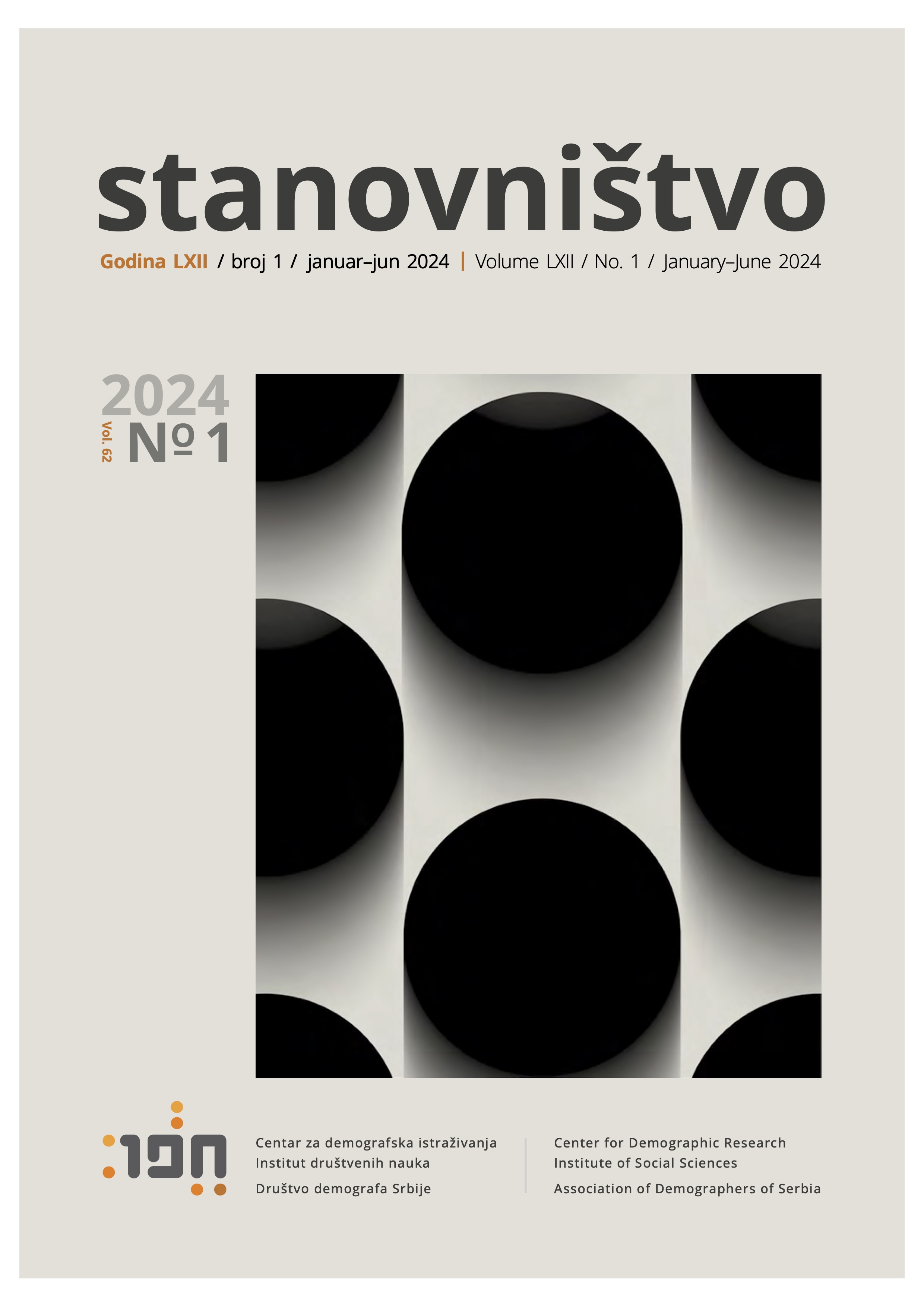Institucije i dobro upravljanje kao faktor migratornih kretanja u Evropi
Institution and good governance as a factor of migration in Europe
Author(s): Dejan Molnar, Ivana M. Ostojić, Predrag P. JovanovićSubject(s): Social Sciences, Demography and human biology, Economic development, Migration Studies, Socio-Economic Research
Published by: Институт друштвених наука
Keywords: net migration; gross wages; control of corruption; rule of law; institutions
Summary/Abstract: The research objective is to determine the relative importance of two groups of factors that influence the net migration rate: economic, such as the gross average monthly wages, and non-economic, which include the efficiency of institutional arrangements based primarily on the corruption control and the rule of law indicators. According to the neoclassical theory of migration, economic factors have a dominant influence on the migration decision-making process. On the other hand, the institutional theory of migration advocates the position that institutional and the factors that reflect system of governance prevail over the economic ones. The assumption on which the research is based is that migration is caused to a greater extent by the quality of institutions and good governance indicators, than by the opportunities to achieve a better material position represented by higher average salary. On a sample of 48 European countries, for the period 1996–2021, it is investigated which group of factors dominantly determines the net migration rate. The sample of 48 countries is divided into two sub-samples so that one of them contains the countries with a higher level of income and strong anti-corruption and rule of law standards (28 European Union countries) and the remaining 20 include non-European Union members with lower gross average monthly wages, weak institutions, as well as less favourable indicators of the rule of law and control of corruption. Using the techniques of dynamic econometric analysis of panel data (system GMM), predictors of the net migration rate in European countries are identified. The analysis confirms that the quality of the institutional framework is extremely important and that the rule of law and corruption control has a stronger impact on the net migration in European countries than the gross wages. This is supported by the evaluated parameters corresponding to the explanatory variables in the models. The research also confirms that institutional factors have a stronger impact on the net migration rate in less developed European countries that are not members of the European Union than in the 28 European Union countries. Corruption is an important problem in many countries and citizens are very sensitive to this aspect of institutional quality. The findings of this research show that less developed European countries must pay special attention to building institutions, the rule of law and control of corruption if they want to stop negative trends in net migration, and that these factors prevail over the economic factors that were dominant in the 20th century.
Journal: Stanovništvo
- Issue Year: 62/2024
- Issue No: 1
- Page Range: 23-41
- Page Count: 19
- Language: Serbian

